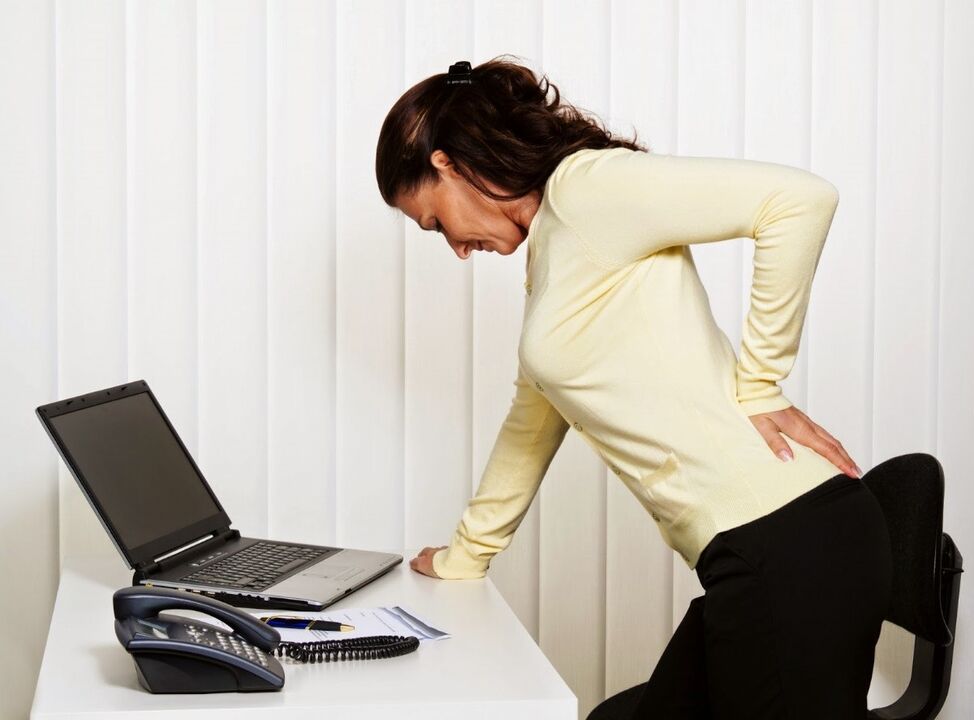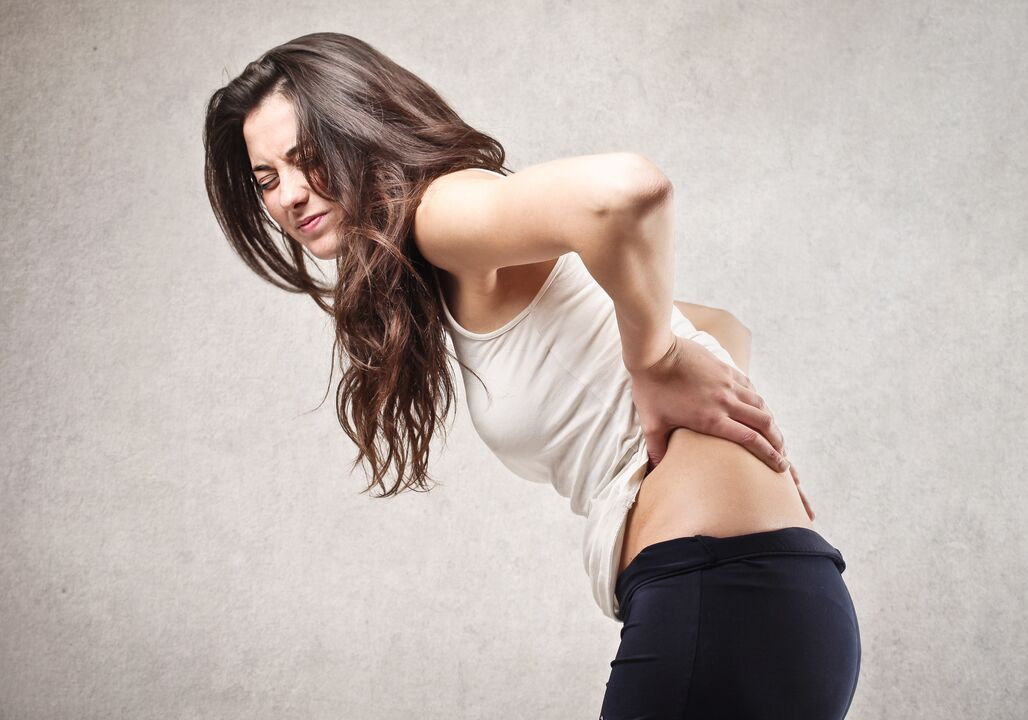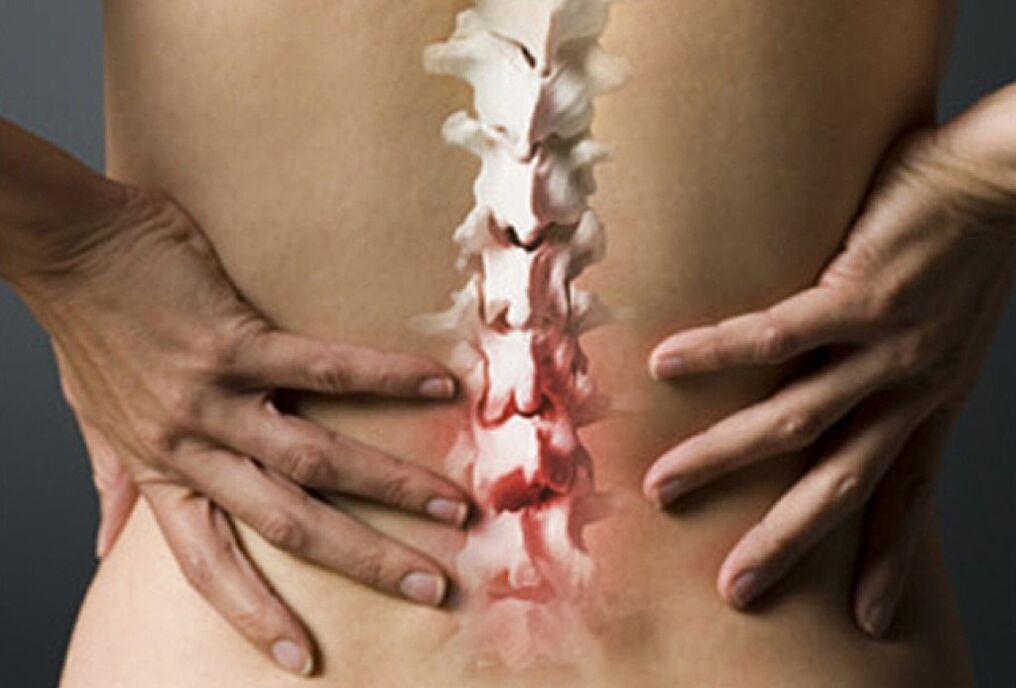
Osteochondrosis is considered a common disease of the spine. Most of all, due to the specifics of lifestyle, the lower back suffers, therefore, the symptoms of osteochondrosis of the lumbar spine are more common than others. Pathology is equally dangerous for both men and women, regardless of age. Patients with the disease wear a corset, suffer during pregnancy. Diet and exercise become essential.
The disease is highlighted in a separate section of the 10th revision of the International Classification of Diseases (ICD-10) and is referred to as deforming dorsopathy (ICD-10 M42-43). Osteochondrosis of the spine has been assigned a code: M42 according to ICD-10. There are such options for ICD-10:
- Juvenile osteochondrosis - M42. 0 according to ICD-10.
- Osteochondrosis in adults - M42. 1 according to ICD-10.
- Unspecified forms - M42. 9 according to ICD-10.
If earlier the disease spread to people over 30 years of age, then recently there has been a tendency to affect the pathology of the younger generation. Associated with stress and prolonged exposure to the computer, a passive lifestyle.
The lower back always experiences great loads both in the motor character and by the load of the body weight. Women suffer a lot during pregnancy, people whose life history includes numerous lumbar spine injuries, and ignore such a factor as exercise. Also, studying the causes of intervertebral hernia, infringement of the sciatic nerve, one can single out the main factor - long-term osteochondrosis.
Causes and stages of pathology
All causes leading to pathology can be divided into external and internal. The first are associated with various influences of external factors. People who lead a sedentary lifestyle, who have excessive body weight, are prone to osteochondrosis. In addition, there are such predisposing factors:
- professions associated with a long stay in a sitting position;
- hypothermia;
- weakening of the body's defenses associated with stress, overwork.
Internal causes are based on genetic predisposition and various diseases. With endocrine diseases, the restoration of bone, muscle tissue and its nutrition is disrupted. This condition can be seen with age and with a genetic predisposition, especially if the medical history indicates spinal injuries at a young age.

Pathological disorders of the structure of the spine accelerate the appearance of osteochondrosis; if left untreated, the disease progresses rapidly. The most significant conditions are kyphosis, scoliosis. Furthermore, clinical history indicates that the most common cause of the disease is spinal injury.
The disease has 4 stages of progression. In the first stage, there are no serious disturbances in the nutrition and structure of the spinal discs. Symptoms are mild. They can be easily removed with painkillers. It is possible to cure the disease during this period as quickly as possible, the main thing is not to warm up, not to strain the back. Diet and rehabilitation help a lot.
Often, osteochondrosis begins to appear during pregnancy, if left untreated, it quickly goes to the next stage. The history of the disease considers the corset to be an effective remedy for the progression of the disease.
The second stage is characterized by bumps and vivid clinical manifestations. Treatment becomes difficult, exacerbation occurs more often. For girls, before pregnancy, it is necessary to cure the disease in order to avoid complications due to salt deposits and displacement of the vertebrae. There may be problems with going to the toilet, then special candles will help. A brace, diet, daily exercise, and ERT can also be effective.
The third and fourth stages are dangerous with the appearance of intervertebral hernias, complications and disturbances in the functioning of internal organs. Only diet and massage will not help. Sometimes the only way out in the fight against the disease may be surgical treatment. In the future, a person will need to wear a corset and recover for a long time.
Symptoms
Signs of lumbar osteochondrosis begin to appear at the first stage of the disease with the appearance of acute pain in the lumbar region. The exacerbation at first passes quickly and does not interfere with the normal function of working capacity. During pregnancy, a woman constantly feels discomfort and muscle tension.
With the progression of the disease, exacerbation occurs more often, but it can be eliminated with painkillers. Pain symptoms become prolonged, aching. If the nerve fibers are affected, the pain radiates to different parts of the body. It can be leg, buttocks and different areas of the back. Increased pain occurs when staying in one position for a long time, sudden movements or lifting weights. A characteristic sign of osteochondrosis may appear - back pain.
In addition to the sensation of pain, the muscular corset suffers. The back muscles are constantly in a tense state, painful when pressed. Over time, the exacerbation does not go away, the patient develops excruciating pain, which is aggravated by even a slight movement, coughing or sneezing. During pregnancy, weight gain occurs, which worsens the general well-being of the woman and causes constant symptoms of osteochondrosis.
In extreme stages, the innervation is interrupted and the spinal cord is affected. The muscular corset does not cope with protection, the vertebrae are destroyed, intervertebral hernias are formed. There are failures in the work of the intestines, stomach and genitourinary system. Men have problems with potency. Constant pain and symptoms of intoxication worsen a person's well-being. The medical history of a patient with such abnormalities often brings the patient to the operating table.

Treatment
To choose the right treatment for osteochondrosis, diagnostics are performed. The patient's medical history and complaints are studied in detail. Exacerbation allows the condition to be identified with greater precision by means of diagnostic techniques. The patient's medical history is updated with new symptoms. An x-ray is ordered to examine the spine. During pregnancy, X-rays cannot be performed in the same way as with a corset.
There are other diagnostic methods. It can be MRI or CT scan. An ultrasound examination is performed to examine the internal organs, especially if the medical history indicates various pathologies.
Treatment in each case is selected individually and should be comprehensive. There are certain principles that help to cure the disease. These are drugs to relieve pain, a diet to normalize the functioning of internal organs. Also, you cannot heat the affected area.
During pregnancy, you must first worry about the health of the fetus. With a running course, in addition to the main course of therapy, it is necessary to wear a corset. In case of impaired intestinal function, special suppositories are used. Also, you can not warm up the muscles of the lower back, if there is an exacerbation. The diet is prescribed after consultation with a gynecologist. The load must be special and at a certain time.
Treatment is primarily aimed at eliminating symptoms, restoring the physiological functions of the spine.
For pain, it is necessary to take NSAIDs, antispasmodics, analgesics. The necessary remedy will be prescribed by the doctor. You can relieve severe pain with the help of novocaine blockade.
The diet excludes foods that are harmful and difficult for the liver and kidneys. Do not abuse alcohol, cigarettes. To cure the disease, you can combine drugs and alternative methods of therapy at the same time. The load must enter into the rhythm of life. It is impossible to warm the area of the lesion during the exacerbation and at the beginning of treatment. The diet must be prescribed for a long time.
Effective massage, manual therapy, physiotherapy and daily exercise - that's what will help you get rid of the disease and always stay in shape.


























